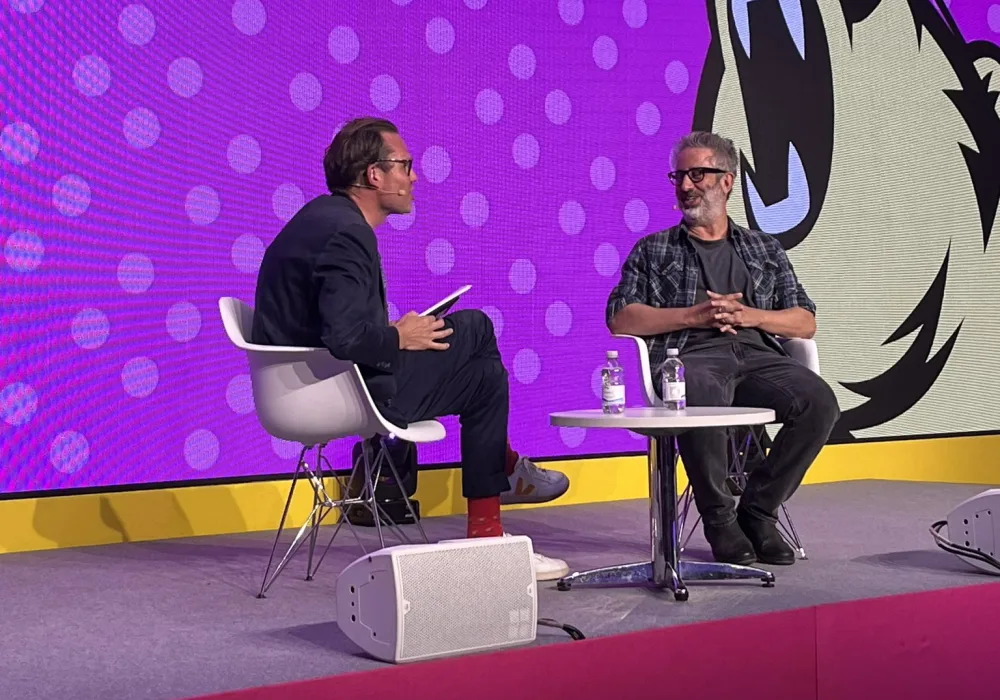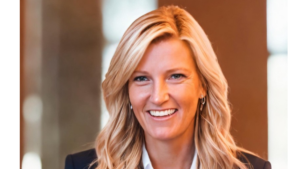Social media have given everyone a voice, ‘ultra-democratising’ the nature of speech, according to comedian, presenter, author, and screenwriter David Baddiel, speaking at MAD//Fest London 2022.
On the back of last year’s Social Media, Anger and Us documentary, Baddiel spoke to NDA Editor Justin Pearse about what the rise of social media has meant, the toxic nature of it, and his view on how brands should deal with the environment.
“One obvious change is the ultra-democratisation. Everyone has a voice now. Everyone can respond. Everyone can push back. And that seems like a good thing. And, it is, at some level, a good thing,” said Baddiel. “It’s disruptive in terms of what you’re talking about – the ability to disrupt, which you’re very into at MAD//Fest – that’s been boosted a thousand times by social media. The whole notion of disruption wouldn’t really exist without social media.”
We all have a brand
That ultra-democratisation of speech has meant that social media has provided a platform for everybody to create individual brands, even when those people are posting content for the businesses they work for, according to Baddiel.
“We think in terms of individual brands on social media,” he explained. “A lot people represent companies, but social media seems to have been setup by establishments on the basis of giving individuals brands. That seems to be what it’s done. They’ve created the idea that everyone can curate an identity out there that is them.”
To highlight how this can sometimes be a problem for brands, Baddiel pointed to the examples of Halifax and Yorkshire Tea.
Halifax recently begun placing gendered and non-gendered pronouns on the name badges of its staff. This, as you’d imagine, angered some of Halifax’s customers – with some threatening to close their accounts with the bank. Halifax’s responded to some of these people on social, effectively telling them they were free to leave.
Meanwhile, in 2020, Yorkshire Tea received backlash for responding to a tweet from now-former Chancellor Rishi Sunak, with people threatening to boycott the tea brand over a supposed affiliation with the Conservative party.
The issue in both these instances, and any similar ones, is did the messaging come from the brand or just an individual running the social media account?
“As we’ve seen all over the place, big companies tend to say something about the way live now, to be on the right side of history,” said Baddiel. “I think there is a cynicism about it. And there’s something else as well, which is, when I see those things, I always say, ‘Is this the actual company doing this or just an individual social media manager who decided they want to say something about this?’”
You’re cancelled
Baddiel also discussed cancel culture, and how social media has, effectively, created an environment where it’s okay for to mob the people we disagree with.
“I think the problem is, when people talk about the power of social media, some people are very pro what is called ‘cancel culture’. They imagine that is just democracy in action. That it’s just people who push back on something that they don’t like or decide that this thing is unacceptable,” he said
“What we’ve created with social media is the ability to mob the world all the time.”
Similarly, social media also has the toxic issue of trolling for people to contend with – something that Baddiel is no stranger to, whether he’s commenting on world events or just sharing cat pictures.
“When I get trolled, it’s basically hecklers, and I’m used to hecklers. I’m a comedian. I’m used to people shouting abuse at me,” Baddiel stated.
“I’ve dealt with some bots, people working in troll farms. And, some of the time, I don’t know why they’re trolling me. What’s the political advantage if you work in a Ukrainian troll farm? I put something out about my cat, and you’re calling me a tosspot? How is that helping the Ukrainian political initiative? I don’t really understand, but it happens all the time.”
Separately from the topic of social media, Baddiel ended the discussion by claiming that our Editor, Justin Pearse, looks like “Christian Slater’s son”. And I think that’s something we can all agree with!









